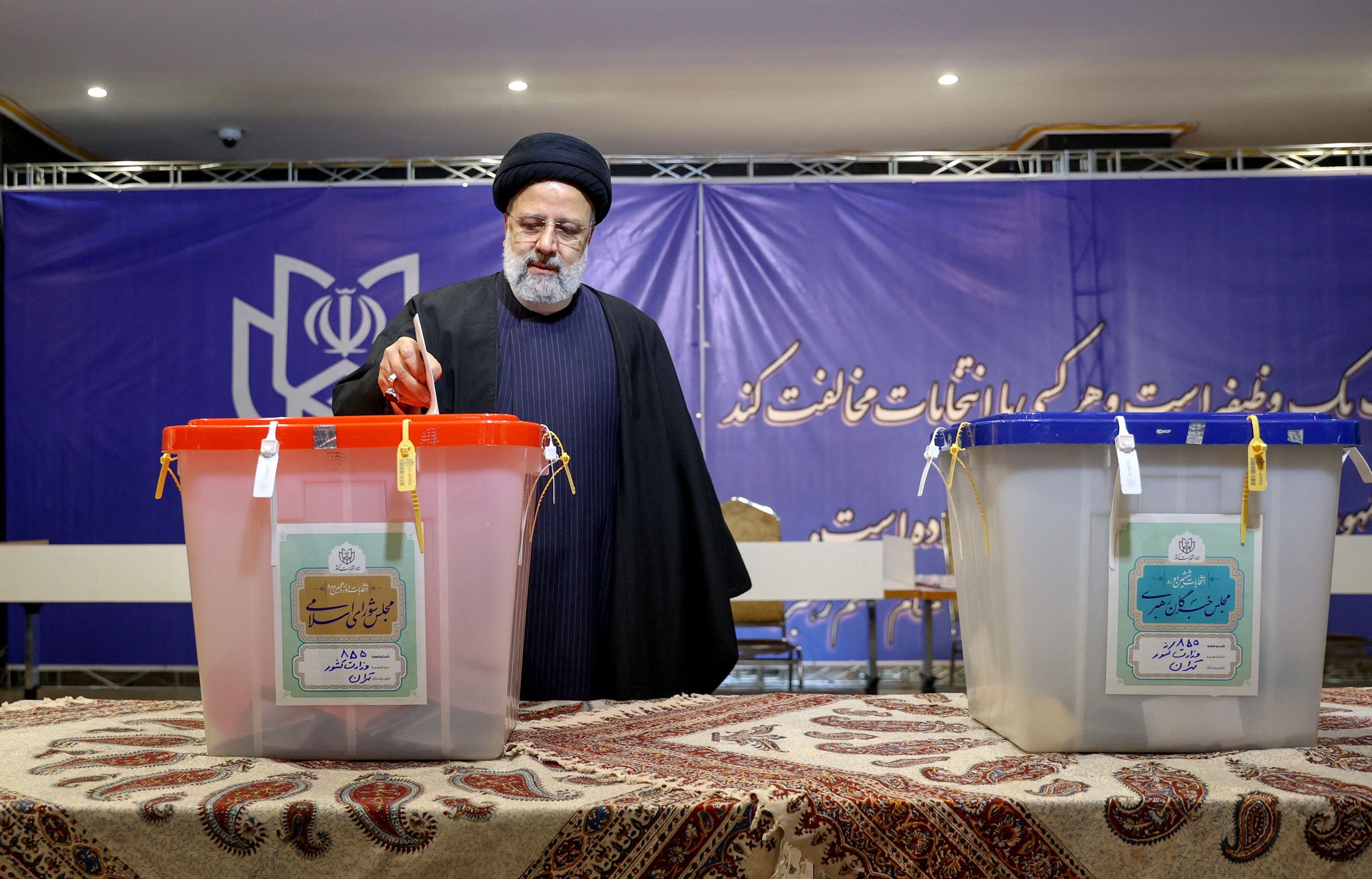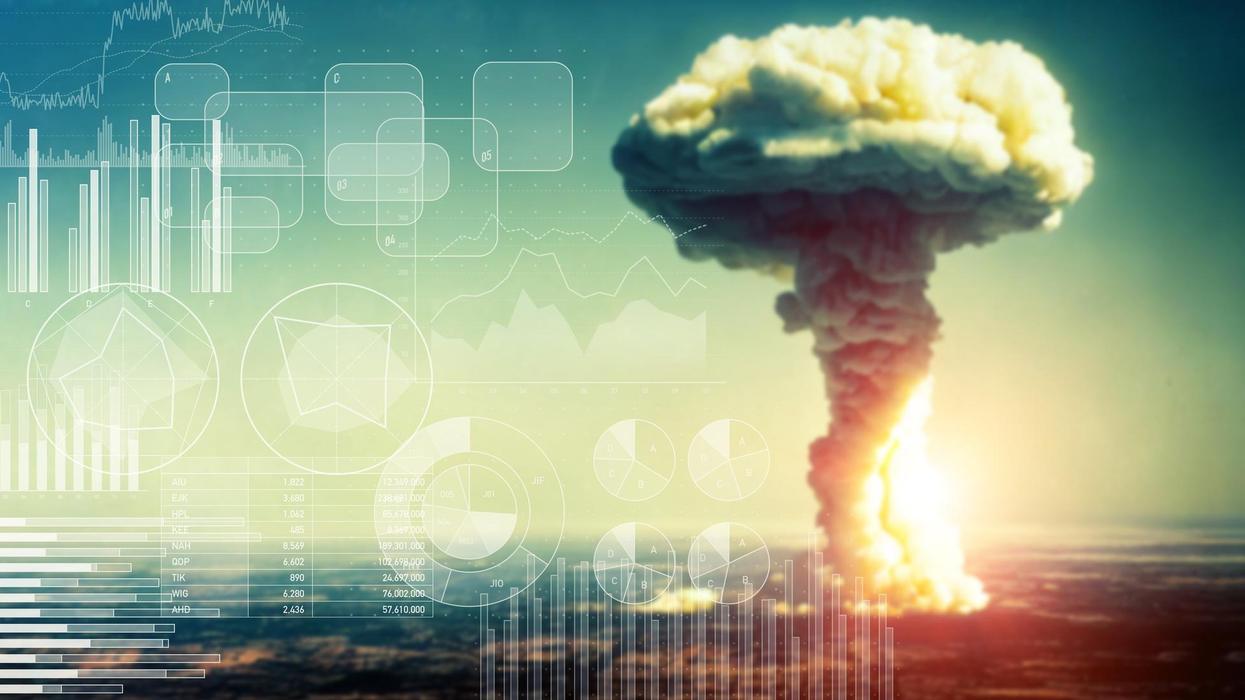On March 1, Iranians voted for a 290-seat Majles (the parliament) and an 88-seat Assembly of Experts, a clerical body tasked with overseeing the Supreme Leader of the Islamic Republic and selecting the new one.
The elections, the first after the widespread protests in 2022-2023 sparked by the death in custody of a young woman, Mahsa Amini, due to flouting the country’s strict dress code, were heavily marred by boycott from the moderate and reformist-leaning segments of society.
The Guardians Council, the hardline-dominated body that vets the candidates, compounded the resentment by disqualifying most of the few moderate and reformist candidates who bothered to apply. The extent of disqualifications reached truly farcical dimensions: the former two term president (2013-2021) and member of the Assembly of Experts for 24 years, the centrist Hassan Rouhani was barred from running for the Assembly of Experts.
As a result, the elections registered the lowest turnout in the history of the Islamic Republic: 40% according to official data, and closer to 30% according to unofficial observers. For a system that traditionally places a high premium on participation as means of its legitimation, these numbers represent an unmitigated fiasco.
The new parliament will thus be dominated by hardline factions. The moderates who made it to the parliament will be reduced to a marginal minority of around 20 MPs. That, however, does not necessarily augur an era of a rubber-stamping chamber. The different conservative and hardline factions are bound to try to out-hawk each other on a host of domestic and foreign policies, such as enforcing rigid veiling on women or defying the U.S. and boosting the “Axis of Resistance,” as a network of the Iranian allies in the Middle East is known.
The declining fortunes of the outgoing speaker of the parliament Mohammad Bagher Qalibaf illustrate the taste of things of come: a traditional conservative and IRGC veteran who occasionally displayed a pragmatist streak, Qalibaf came only fourth in Tehran out of 30 Tehran MPs, tallying 409,808 votes as opposed to 1,260,000 he gathered in 2020. The main beneficiary of his decline seems to have been an ultra-radical firebrand Mahmoud Nabavian who came first in Tehran with 535,000 votes and is reportedly strongly opposed to Qalibaf.
Nabavian made himself famous by categorically stating the ex-president Rouhani and his foreign minister Javad Zarif purposely signed to the Financial Action Task Force (FATF), an international watchdog against money laundering and terrorist financing, to hand over Qassem Soleimani, the commander of the IRGC elite Al-Quds Force, to the U.S. in exchange for getting the banking sanctions released. Soleimani was assassinated in a U.S. drone strike in Iraq in early 2020.
It wasn’t always like this. In February 2018, as a foreign affairs staffer, I was part of the visiting European Parliament delegation to Iran, during which we met with our counterparts in the Iranian parliament. Then our delegation witnessed a fair degree of pluralism running from hardline conservatives, through pragmatic principlists to outright reformists. The assembly was chaired by Ali Larijani, a pragmatic conservative who in his later years moved increasingly to the center — to the point of being excluded from running in presidential elections in 2021. That parliament was elected in 2016 with a participation rate of 61.4%, reflecting the optimistic mood in the country following the signature of the nuclear deal in 2015.
This correlation between higher participation and reformist pulsations is not lost on the guardians of the “nezam” (or, the system). Yet the 2024 elections took place in a particularly sensitive context, and, more than with the parliament, it had to do with the simultaneous elections to the Assembly of Experts. That body is elected once every 8 years and is tasked with selecting the new supreme leader. Given that the incumbent Ayatollah Ali Khamenei is currently 84, it can’t be ruled out that the newly elected assembly will have to choose his successor.
To ensure the clerical continuity of the Islamic Republic, the establishment has apparently chosen to run as little risks as possible and accordingly narrowed the field to the most loyal of the loyalists. That explains the exclusion of Rouhani from running. In another significant upset, the former chief justice Ayatollah Sadeq Amoli Larijani, a brother of the former speaker of the parliament Ali Larijani, failed to secure a seat in the assembly, even though he, as opposed to Rouhani, was allowed to run.
These developments suggest that the establishment is clearly less concerned with the popular legitimacy and representativity of the institutions than with ensuring a smooth transition to a new leadership.
This aversion to risk also helps explain why Iran’s foreign policy is in fact more moderate in practice than its rhetoric suggests. Iran’s focus is on vindicating its diplomatic and moral leadership in the Islamic world as the leader of the “resistance” over Palestine rather than seek a military confrontation with Israel and/or U.S. Such a confrontation could bear unacceptable security and economic costs and derail the main priority which is to carefully stage-manage the transition.
Iran’s influence may help to explain why there was no escalation following the U.S. strikes on Iran-allied Shiite militias in Iraq and Syria carried out on February 2 in retaliation for the drone attack that killed 3 U.S. service members in Jordan. It is particularly meaningful that there was no response from Kataeb Hezbollah, one of the closest Iranian allies in Iraq, to the killing of one of its top commanders by the U.S. — even though it took place after the group announced, presumably in coordination with Tehran, that it was halting its attacks on the Americans.
Elsewhere, Iran has continued its rapprochement with Saudi Arabia, despite the latter’s cozying up to Israel. While in late 2022, Tehran conducted war drills on the border with Azerbaijan — unlike Saudi Arabia, an open ally of Israel’s — it is now busy discussing new transit deals with Baku. There are even signs that Iran’s opposition to Israel itself may be less stringent than its rhetoric suggests: Tehran backed at the U.N. and at the Organization of Islamic Conference resolutions calling for a two-state solution between Israel and Palestine, thus implicitly recognizing Israel’s right to exist.
There is a decent chance that a departure of Khamenei, who holds strong personal and ideological animus against Israel, may further tilt Iran in a pragmatic direction. And Tehran, even under the current hardline government, occasionally showed an ability to deal with Washington — witness the prisoners swaps and the agreed unfreezing of Iranian assets in September of 2023.
The elections in Iran have gone a long way from removing any lingering pretense of democratic legitimation of the system. Little change, however, is expected in the country’s foreign policy: Tehran is likely to continue talking tough while seeking deals where possible.
















